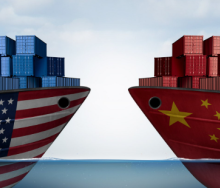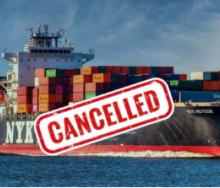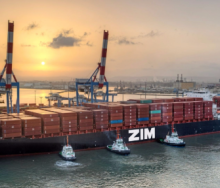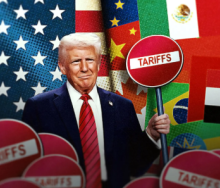The TradeView Global Trade Intelligence Platform has recorded a sharp decline in global cargo activity involving the United States, coinciding with President Donald Trump’s announcement of sweeping new tariffs.
According to the latest data by San Francisco-based freight visibility tracker, Vision, import bookings into the US have plummeted by 67% over the past week, while export bookings have dropped by 40%, signalling immediate repercussions for trans-Pacific trade flows.
The downturn was sparked by last Wednesday's ‘reciprocal tariff’ announcements by the US that impose levies as high as 50% on some 60 countries.
Considering today’s US punishment tariff of 104% on Chinese goods, following trade retaliation because of China’s 34% retaliation tariff against an earlier same-percentage US tariff, import-export fall-out for the US cargo market is expected to deteriorate even further.
The Trump administration’s ‘trade-correcting’ measures, essentially aimed at reinvigorating the US economy, are already having the opposite effect, disrupting long-standing global trade frameworks and sparking fears of a global recession as global stock markets plunge.
The S&P 500 has lost nearly $6 trillion in market value since the announcement, marking its steepest decline since its inception.
The tariffs have also caused ripple effects across supply chains.
Many businesses in the US are diversifying sourcing strategies to reduce dependence on China.
However, the new tariffs have complicated these efforts, with countries like Vietnam and Taiwan now facing elevated duties as well.
This has left companies scrambling to reassess production locations and supply-chain strategies. For smaller suppliers and industries reliant on global networks – such as aviation – the increased costs and uncertainty are particularly challenging.
Economists warn that these tariffs could lead to prolonged trade tensions, selective retaliations, and a restructuring of global trade along more regional lines.
Various news sources based in the US, including CNBC, reported that while some nations were seeking to negotiate trade agreements with America, uncertainty surrounding these discussions was making it difficult for businesses to devise effective mitigation strategies.
In the near term, analysts expect continued volatility in supply chains and markets as stakeholders assess the broader implications of ‘Trump tariffs’ and reaction from global markets.













